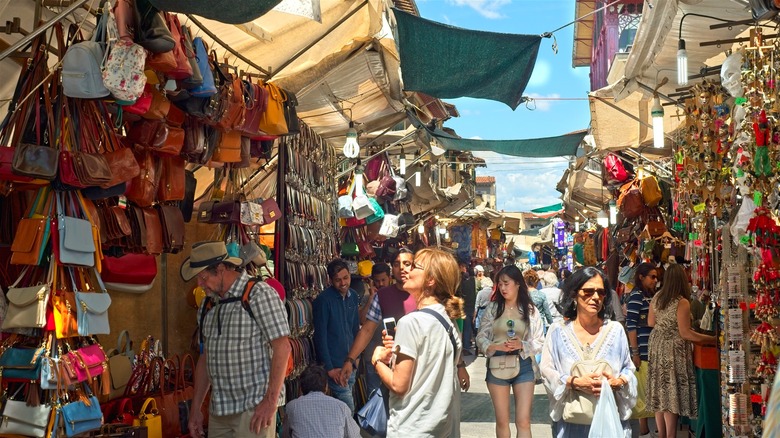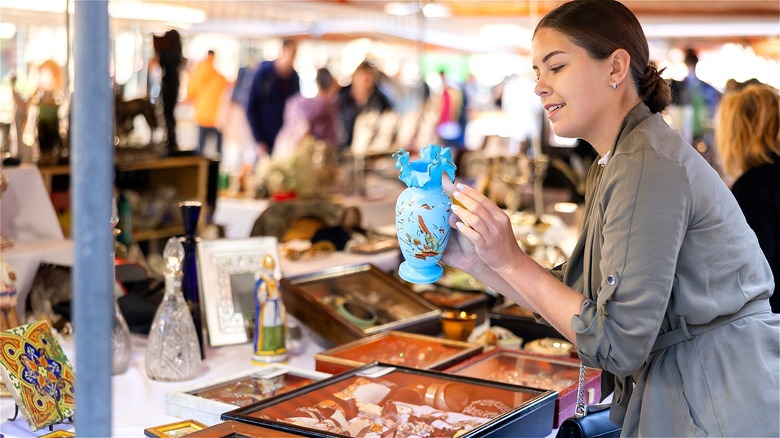Rick Steves' Best Advice For 'Haggling' In Europe
Haggling is common in markets across Europe, especially in the Mediterranean, where it is not just accepted but expected. For Spanish, Italian, Greek, and Turkish merchants, this act of bargaining isn't merely a negotiation and transaction, but sometimes a game and even an art form. In some cultures, it can be viewed as an excuse for fiery banter that may resemble an argument but shouldn't be taken personally — it's just the vibrant rhythm of these lively locales. For perspective, Istanbul Airport may be considered one of the greatest airports in the world for layovers, but it doesn't compare to the buzz of the Grand Bazaar.
Rick Steves, the seasoned traveler and author, has haggled through countless markets all over Europe, from Spain to Slovenia — one of the most overlooked countries on the continent. After years on the road, he has gathered numerous tips and strategies to help others navigate Europe's spirited haggling culture. Steves sees this exchange as both cultural and commercial, one that leaves both sellers and buyers a little richer and with smiles on their faces.
What to know about haggling in Europe
First and foremost, according to Rick Steves, common sense is important when haggling. You need to know your surroundings and what is acceptable. For instance, you can't haggle in shopping malls and other conventional stores. You can't negotiate a cruise price, either. Save your haggling game for the flea markets, where merchants will likely strike up a conversation as soon as you approach their stall.
If you find an item you're interested in, simply ask them the price if they haven't told you. If it's too steep, say so — this will invite discounts. Alternatively, if you have a number in mind, give them your price. You can get an idea of what's fair by shopping around and getting the measure of the going rate. Bear in mind that most sellers will indulge in a degree of inflation, so maintain a friendly skepticism of these seasoned sellers — they expect you to knock them down.
There are numerous tactics you can use if a seller drives a particularly hard bargain. First, don't look overly enthusiastic about the product, you're unlikely to get a fair price that way. Also, drop knowledge on the product if you can; that may impress the seller and adjust their expectations in your favor. Keep a friend or third party next to you, too. They can complain about budgeting, time keeping, or other constraints that can help expedite a good price.
Finally, always be willing to walk away from a deal; this is the foundation of haggling. As Steves explains, these are professionals, after all, and they know that not everyone will make a purchase.

